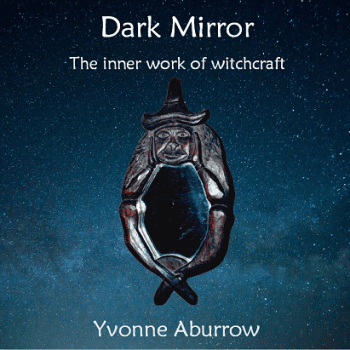Hello, beautiful creatures. Let’s talk a bit about labels, shall we?
Over the past weekend, I had a delightful conversation with my daughter in which we talked about the power of words to shape our reality. I was, of course, thrilled. This is one of my favorite subjects to nerd out about generally1, and the fact that my daughter brought it up made me giddy with excitement. Specifically, she wanted to talk about the labels we use to identify ourselves and others. It’s been a topic of conversation at her school, and she wanted my help exploring what it meant to be something, to identify with some label. I think she was both excited by the power of self-determination that a label can confer and nervous about the responsibility that power incurs. After all, she reasoned, if we define ourselves by some label, isn’t that a kind of commitment to always be whatever that label designates? Doesn’t that make us accountable to some outside authority which adjudicates the boundaries of that label, that identity? What if she identified with a label yesterday, but doesn’t today? Does that mean she lied to her friends, many of whom share affinities with her based on those very labels?
Gentlefolk, I give you: my daughter.
So we talked about labels and identity, and I shared with her my favorite explanation for the utility, power, and limitation of labels. She seemed to find it pretty helpful, which is a nice feeling when you’re a parent. I shared this story with a colleague and former professor of mine yesterday, and they seemed to find it pretty useful as well, so I thought I’d pass it along to you today.
Labels, I said, are like the handle on a suitcase or—relevant to my own biases—on a coffee cup.

A handle can be fancy or simple, but ultimately the point isn’t the aesthetics. It’s the utility. After all, a handle that doesn’t help you hold the coffee cup isn’t much of a handle, right? At the same time, though, the handle isn’t what’s important about the coffee cup. The cup itself isn’t even that important.
No, dear ones, what’s important is the coffee itself. You can drink your morning joe from bone china, ceramic, enamelware, or plastic, but none of the materials makes a lick of difference to whether or not you’re getting caffeine into your bloodstream.
I trust that most of you can follow this metaphor to its logical conclusion, but just in case, I’ll make it as explicit as I know how: In the wild, wild world of Paganism, polytheism, and magical practice, we spend an awful lot of time arguing about labels3. The same holds true in the LGBTQIA+ community, where we savage one another pretty ruthlessly over the increasing granularity of queer and trans identity.
Now, to be clear, I actually like this granularity of identity. As I said before, I love the power of words to shape the world, and I love how we’re developing a language for expressing the shape and nuance of our lived experiences of gender, sexuality, and spirituality. I think it’s fantastic that LGBTQIA+ folks and the Pagan, polytheist, and magical practitioner communities are working through their own self-creation and self-naming, claiming and owning their own experiences and power.
What I don’t think is fantastic is the tendency for embracing labels to turn into gatekeeping, policing, and ostracizing. After all, as I said before, the point of a label is to give you a handle on something, a means by which you can carry something much larger, heavier, hotter, more awkward. When you make the cup all about the handle, you miss out on the entire point of the handle in the first place: to hold your cup so you can drink your damn coffee.
The cliché “it’s what’s inside that matters” really is true here, and what’s inside is what we’re all about. Words like “gay,” “lesbian,” “bisexual,” and “asexual” are labels we put on a set of lived experiences, as are words like “transgender,” “cisgender,” and “nonbinary.” Similarly, words like “witch,” “magician,” “druid,” and “priest” are labels for collated sets of actions, practices, beliefs, and experiences. These labels are meant to serve us, to communicate something about our experiences and lives to other people. What they’re not meant to do is serve as a choke-chain or a set of handcuffs binding us to some particular interpretation of what those experiences mean. We are the only ones who can interpret the meanings of our experiences with any accuracy, and the only ones who can say which labels are the best handles for those experiences.
What I told my daughter was that lives grow and change, and that she might grow out of or away from any label she adopts… and that’s okay. The point of life isn’t the labels: it’s the experiences we use the labels to express.
Until next time, dear ones, own those experiences. ♥
- I narrowly avoided majoring in linguistics by dint of it being on a different campus, but honestly, it was a near thing.
- Side note: can we talk about the fact that “awkward” and “unwieldy” are awkward and unwieldy to spell? That just seems unfair.
- I’ll offer, as exhibit A, the fact that I needed to specify “Paganism, polytheism, and magical practice” in order to circumscribe the subcultural groups I wanted to identify. As exhibit B, I’ll point our communities’ extensive histories of infighting and ongoing disputes over what words mean and who has a right to use them, as exemplified by words like “Wicca,” “witch,” “Pagan,” “Heathen,” and “magic.”













